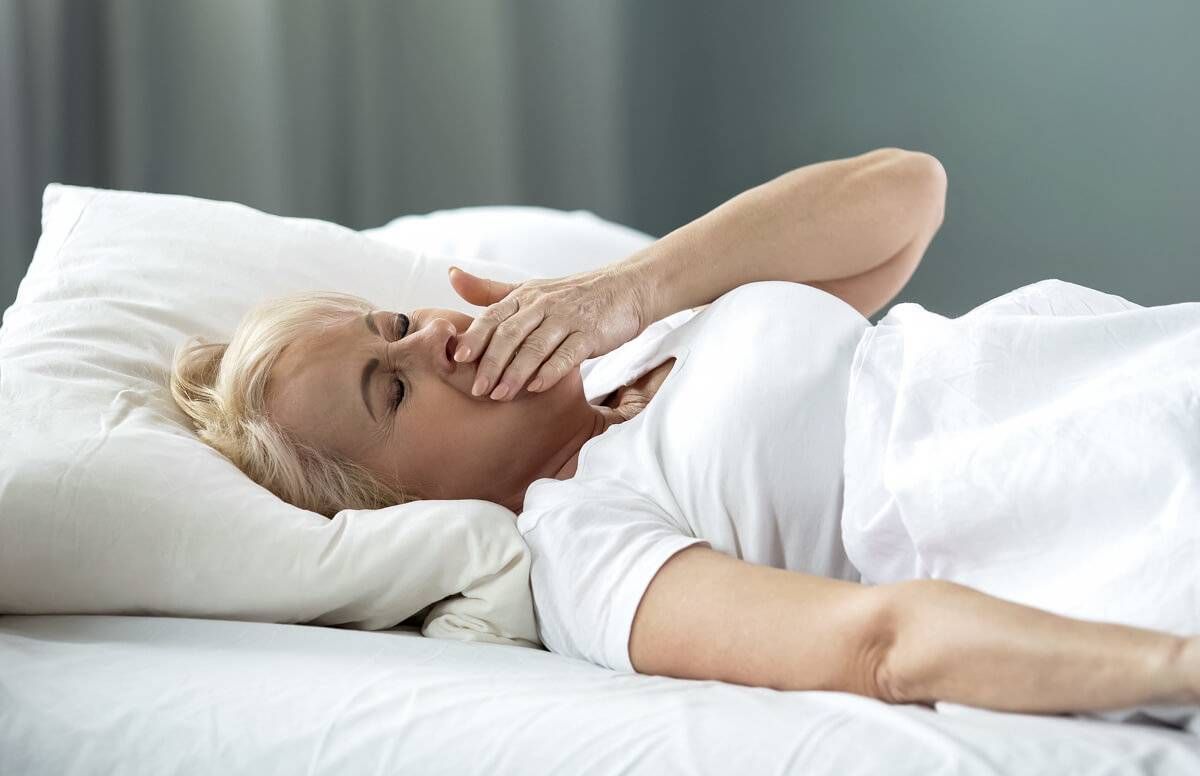How Your Body Heals When You Sleep
Why good sleep matters, plus tips for getting better Zzzs
Americans are skimping on sleep and may no longer be spending the “one-third” of their lives sleeping that we used to hear about. In fact, at least one-third of adults in the United States say they get less than seven hours of sleep each night, according to the Centers for Disease Control and Prevention.

The stress of everyday life can keep you wound up all day — which makes it hard to unwind at night — and staying wound up interferes with your sleep. Even if you are lucky enough to get eight hours of sleep, getting good quality sleep also is an issue. Some 50 to 70 million Americans struggle with some sort of sleep disorder, according to the American Sleep Association. And the side effects of poor or inadequate sleep are huge: Sleep problems increase the risk of heart disease, diabetes, obesity and depression.
How Sleep (or Lack of it) Affects Your Body
When you sleep, your body restores and repairs various functions and replenishes hormones to a healthy level.
“Sleep services all aspects of our body in one way or another: molecular, energy balance, as well as intellectual function, alertness and mood,” says Dr. Merrill Mitler, a sleep expert and neuroscientist at the National Institutes of Health (NIH), in a story on the NIH website.
In other words, late nights and disrupted sleep interfere with the body’s ability to repair damage and rejuvenate itself.
Getting quality shut-eye, as it turns out, becomes more challenging as we age. At least 50 percent of people age 65 and older report having sleep problems, according to The American Journal of Geriatric Psychiatry.
A few things are at play here. The risk for chronic diseases increases with age, and some of these conditions, such as high blood pressure or heartburn, can disrupt a good night’s rest, according to the National Sleep Foundation.
Sleep Changes as We Age
Another factor is that the depth of sleep changes as you mature. There are four stages of sleep, including three progressing stages of non-rapid-eye-movement sleep, followed by rapid-eye-movement (REM) sleep, which is the deepest and most restful. With age, you experience less REM sleep.
While you may be tempted to reach for pills to get some Zs, Dr. Andrew Freeman, a cardiologist and co-chair of the Nutrition and Lifestyle Workgroup of the American College of Cardiology, warns that it’s not a good idea to rely on prescription and over-the-counter medications as long-term solutions to manage your sleeping woes. Experts agree that the best solutions for long-term sleep management are simple — and free.
“Long-term, good quality sleep comes from good sleep hygiene; use the bedroom for sleep and intimacy only,” Freeman says.
Try These for Quality Shut-Eye
Other valuable tips to help you slip into a soothing slumber:
- Make exercise a part of your daily routine. Regular activity, both physical and mental, helps the body get tired and sleep. If possible, get moving earlier in the day. Freeman cautions that exercising late in the day may actually stimulate you.
- Avoid caffeine. Stay away from things like coffee, non-herbal tea, cocoa, chocolate and soft drinks in the afternoon.
- Avoid meals within three hours of bedtime. Eating right before you go to bed can make it harder to fall asleep, and can cause heartburn.
- Adopt a regular relaxing activity. Practicing activities such as meditation, a mindfulness practice or yoga, on a regular basis can help you sleep better.
- Get some sunshine. “Being in the sun and seeing sunlight helps trigger the pineal gland to create melatonin,” says John Ayo, naturopath, author and CEO of Travel Balance, which teaches professionals how to stay healthy and energized while traveling. Melatonin is a hormone the pineal gland — a small endocrine gland in the brain — releases that tells the body it’s time to sleep. The pineal gland doesn’t release melatonin until it’s dark, but getting some sunshine helps the body know when to release its own natural sleep aid.
- Unplug. Electronic and wireless devices such as televisions, computers, cell phones and anything emitting light or producing an electromagnetic field actually disrupts sleep. Ayo recommends moving your cell phone away from your bed. Also, many cell phones and computers now have settings that allow you to reduce or eliminate the blue light that sends waking signals to the brain. If your devices don’t have these options, there are apps you can download to help filter out blue light.
- Connect with nature. Research has shown that walking barefoot outside has many health benefits, including reducing stress and chronic inflammation.
- Establish a relaxing nighttime routine. Drink some calming tea, like chamomile, take a warm bath or an Epsom salts foot soak, or read a book; these are all good ways to dial down the adrenaline. Ayo says bedtime preparation is an important way to tell the body it’s time to sleep.
The recipe for a good night’s sleep is not a one-stop shop, but rather a blend of healthy habits. “The ultimate theme here is reducing stress,” Ayo says.
So, if you’re having trouble sleeping, chill out! Take a moment to pamper yourself and relax. It may be one of the single most important things you can do for your health.

